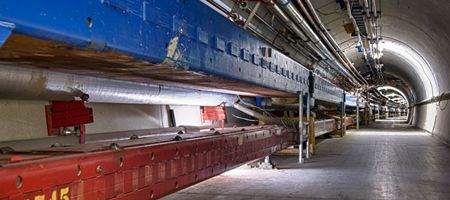Tomorrow, the US’ Tevatron particle accelerator is to give up its efforts to recreate the Big Bang and shut down after 25 years of operation.

Now superseded by CERN’s Large Hadron Collider in Switzerland, the Tevatron’s run by theFermi National Accelerator Laboratory, which hasn’t got the funding to upgrade it.
“When the Tevatron shuts down no one will do anything as dramatic as pull a plug,” says the team.
“Accelerator operators will simply stop putting stores of protons and antiprotons into the Tevatron ring. The last store will be utilized until its collision per second rate drops below a useful level, and then the remaining particles will be harmlessly diverted into a metal target that will absorb them. This is a routine process that has been used for annual maintenance shutdowns.”
Accelerator operators will then warm up the superconducting magnets in the accelerator tunnel for a few days, after which crews will slowly start removing the fluids and gases. The work should be finished by the end of December, says Fermilab.
Over the next few years, the two detector collaborations that use the Tevatron – CDF and DZero – will carry on analyzing the reams of data it’s produced. The two projects are searching for the origin of mass, extra dimensions of space and new particles and forces that would help explain the nature of our universe.
While the Tevatron has been Fermilab’s major focus in the past few decades, the shutdown doesn’t mean the end of the lab itself. Fermilab will continue to operate most of the ten accelerators on site, producing particle beams for experiments involving protons, neutrinos and muons.
During its lifetime, the Tevatron has helped establish the existence of the top quark and five baryons. It’s helped to test and refine the Standard Model of particle physics and shape scientists’ understanding of matter, energy, space and time.






